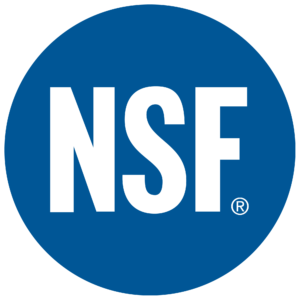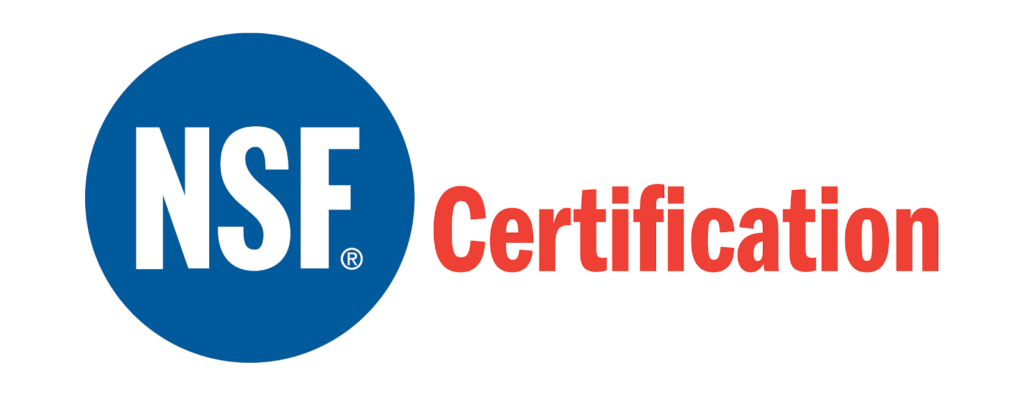It is common to find a water system supplied by your local city water management. Most of the households today have, government-supplied water system. Since it is supplied by a water authority, most people rely upon it because it is tested, approved, and certified. Most city well water is government approved.
While there are many people who own their own private wells, filters, or other water systems. Since these are individual choices of water sources, hardly their water is certified or approved. It is generally installed by a private company, having their own policy and rules regarding the water quality and authenticity of the filter machine they provide. Having water approved and certified gives a sense of relaxation in mind that the water being used is healthy and clean.
Today, there are increasing instances of water being found dirty, unhealthy, contaminated, high in hard minerals, high on harmful chemicals, and so forth. Knowing and thinking the filter will remove all these harmful elements is just a misnomer. Since there is no way to determine the quality of water just by ourselves or by a private firm, which can be untrustable sometimes. Getting your water certified from an independent and renowned organization is something everyone wishes for.
For getting your water tested and certified by a genuine organization, there is a foundation or an organization that mainly focuses on water quality. We will talk about the National Sanitation Foundation (hereafter referred to as NSF), how it certifies water quality, what are its criteria, how it is certified, and so on. So let’s dive into the topic.
Table of Contents
What Is National Sanitation Foundation (NSF)?

National Sanitation Foundation is an independent international Not-For-Profit organization that creates a standard health safety protocol in the food and sanitization sector. Their motto is ”The public health and safety company.” It was founded in the year 1944.
It has one of the toughest and strictest health safety protocols adopted by it. It operates in many countries, and its certification is considered a valuable thing. Today, NSF operates in more than 155 countries across the world. The NSF team’s main work is to inspect, test, certify, audit, verify and approve health products.
Since NSF is an independent foundation and not linked to any third-party organization or nation, its certification, inspection, and testing are done properly and fairly. It is only when a product has been certified by NSF, a round blue NSF mark can be used in the product. The NSF mark indicates that the product has been tested rigorously and is safe to use and consume.
NSF has very stringent food safety and public health standards. They have highly trained professionals from different domains like microbiologists, chemical experts, toxicologists, and health safety experts. NSF certification is a voluntary product certification; choosing to get your products certified entirely depends on you.
NSF manufacturing facilities have a dynamic product testing and inspection facility, which is registered and approved by the Food and Drug Administration (FDA) of the United States. There are hundreds of health testing facilities spread across the globe, either directly or indirectly.
While certifying the health products, NSF meets the FDA’s Current Good Manufacturing Practices (cGMP’s) regulation.
How Is The Certification Process Done?
To be certified, the company that has given its application has to go through a rigorous process of product testing and inspections. As said earlier, NSF has a very tough and hard certification process.
After the company has submitted its application with all details and information about the product, NSF now puts it for evaluation, testing, and inspection in one of its art of technology laboratories.
Here it will check if the company meets the public health safety standard set by NSF or not. If it does not pass the test, the application is rejected; if it passes the test, the company product gets certified. Now the product can use the blue NSF mark. However, the certified company has to go through an annual audit and inspection process.
Here is an example of how a product is inspected. To certify a product, NSF looks at various aspects of the product. For instance, for a foodservice equipment product, the product should be corrosion resistant, smooth, nano absorbents, not easily damaged, easy to clean, etc. Even many local governments and authorities rely on NSF certification for public health safety and sanitation.
Steps That Are Followed In Certification Process By NSF
- A company that is to be certified sends information and application to NSF international.
- Then the product is evaluated and inspected.
- Testing of the product takes place in NSF high-tech Laboratory.
- A sampling of the products and a detailed review of the product as per set protocol.
- Reviewing of the tested samples.
- If a test and samples are passed, a contract is signed, and the product is listed in the NSF domain.
- NSF mark logo is allowed to be used by the company on their products approved.
- Annual inspection and testing are done. This is done to keep the certification active and maintain public health safety in products until it is in the market for consumers.
After all these steps, the product is finally marked by an NSF symbol to let consumers know that the product is certified and approved henceforth.
What Does It Mean When Consumers Buy NSF-certified Products?

Whenever a product is certified by NSF, it means that that product has passed through numerous strict guidelines and has been approved as per public health safety protocol. All the products which are certified mean it uses only FDA approved raw materials.
The product has passed a sample test, laboratory test by multi-level experts ranging from product design, product material, product safety, performance, and construction. NSF-certified product means no chemicals are present in it, nor it is sipped in. Products are consumer-friendly, and the full safety part has been kept in mind.
Other benefits of NSF Certification
- Positive outlook towards the product from the customers
- Guarantees that the product is safe from harmful chemical and contaminants
- Positive brand value in the market
- Confidence and trust for both the seller and the buyer
- Peace of mind
- Increases seller and companies credibility on public health safety matters
- Separates your product from the other uncertified ones
NSF Water System Certification
Whenever NSF tests any water system, again here, also it goes through tough protocols. Here are few things NSF determines and inspect before giving the green signal. These are specifically focused on water systems and related products.
- Durability and quality of the product that has been built.
- Accurate marketing and label claim.
- Safety of the product manufacturing and construction facility.
- BPA/BPS-free approved plastics used in products.
- Testing results from a sample from the manufacturing facility and final product sample test.
It is very easy for companies to give false claims about their products, so NSF is well aware of all these and keeps in mind while deciding to certify a product. This is the reason why this product goes through multi-level checks and balances before getting the certified tag from NSF.
Conclusion
We have in detail discussed NSF. How it works, how it certifies products, and what all mechanisms it uses to certify a product. Certification from the National Sanitation Foundation adds a lot of value to the product.
Getting an NSF marking tag is tough, but when the product gets the tag, it’s easy and peace of mind for a consumer to buy a product without any anticipation and doubt. Certification adds value for both the company and the consumers.
And the best part about NSF certification is that it is registered with the Food and Drug Administration (FDA) of the United States. Moreover, it also meets the FDA’s Current Good Manufacturing Practices (cGMP’s) regulation. Overall, NSF certification has many benefits for all of us in general.
We are assured that the product meets public health safety, it is free from harmful chemicals, and so on. We advise people to get only NSF-certified products for safety and peace of mind reasons.